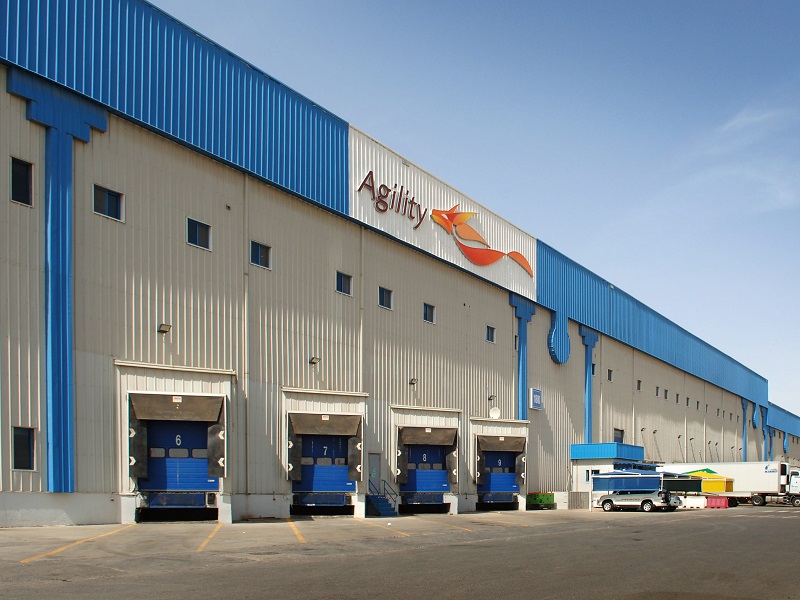Logistics provider Agility reported its first quarter 2021 earnings of 6.01 fils per share on net profit of USD41.9 million (KD12.6 million), an increase of 28.7% over the same period in 2020. EBIT increased 31% to KD26.9 million, and revenue increased 28.6% to KD485.5 million.
Tarek Sultan, Agility Vice Chairman and CEO, said: “Agility started 2021 on a good note. Agility’s Global Integrated Logistics (GIL) business performed well, with favourable market conditions as well as cost controls playing an important role.
“Agility’s infrastructure companies overall are showing strong signs of recovery from the effects of the global pandemic. These infrastructure businesses contributed an average of 80% of Agility’s EBIT over the past five years.”
Regarding Agility’s recent decision to sell its core commercial logistics business, Sultan said, “Going forward, Agility’s agreement with DSV Panalpina for DSV to acquire Agility’s Global Integrated Logistics business allows us to retain the assets generating the bulk of our operating profit, while taking advantage of the scale, experience, operational excellence, and possibilities offered by working with DSV, one of the industry’s top performers. It also creates the flexibility and resources to reposition the company for its next chapter of growth.”
In Q1, GIL achieved EBIT of KD16.4 million, a 936.1% increase from same period a year earlier. The increase was driven by favourable market conditions in freight forwarding and growth in contract logistics, along with strong cost controls.
GIL net revenue reached KD77.2 million, up 16.2% from Q1 2020. The net revenue increase was a result of an increase in freight forwarding and contract logistics net revenue.
Air freight net revenue increased as a result of higher volumes, yields and exceptional charter activity driven by current market situation. In Q1 2021, tonnage surged 14.8% over Q1 2020 levels.
The ocean freight net revenue increase was mainly a result of improved yields. Worldwide effective ocean capacity shrunk as volumes rebounded, particularly in Asia Pacific and Europe.
In the first quarter, contract logistics growth came mainly from Asia Pacific (China, Hong Kong, Singapore) and MEA (Saudi Arabia, UAE, and Kuwait), where there was continued strong performance. Fairs & events and projects logistics, both hurt by the pandemic, saw declines in net revenue.
Agility’s infrastructure group EBIT grew 2.2% to KD24.7 million for the first quarter of 2021. Infrastructure group gross revenue was flat. Entities within the infrastructure group are pursuing their growth strategies and have begun to recover from downturns caused by the pandemic. The infrastructure group remains the main contributor to the group’s profitability.
Agility Logistics Park (ALP) revenue declined 10.2% in the first quarter due to the loss of revenue from Amghara land in Kuwait.
This decrease was partially offset by an increase in revenue from Saudi operations. ALP continues to see strength in demand for warehousing space. Agility’s development strategy is to increase its land bank across the countries where it operates.
ALP’s expansion and development in Africa continues as planned. In the Middle East, Agility’s Logistics Park in Riyadh is almost fully developed; and in Kuwait, ALP is looking to optimise existing assets and will kick-off the Sabah Al Ahmed project development in July.
Tristar, a fully integrated liquid logistics company, posted almost a flat Q1 revenue. However, the company was able to record single-digit profitability growth, mainly due to improved performance in its fuel business. Tristar’s long-standing relationships and repeat business with blue-chip clients have been key enablers of its success.
After a difficult 2020, National Aviation Services (NAS) profitability returned to pre-COVID levels in Q1. Despite a significant drop in flight volumes across its network and a 7% drop in revenue, NAS implemented cost cuts and controls that yielded results.
In addition, NAS successfully launched new operations at Baghdad International Airport and introduced several new health service offerings. Cargo remains a positive part of the business, whilst passenger lounges remain depressed.
United Projects for Aviation Services Company (UPAC) experienced a 38.7% Q1 decline in revenue, primarily due to the cessation of operations at the Kuwait International Airport and the continuation of pandemic-related travel restrictions.
UPAC continues to take various measures to reduce the negative impact on its business. The vaccination programme underway in Kuwait is expected to generate renewed air travel and a gradual recovery in air traffic by Q3.
Construction of Abu Dhabi’s Reem Mall is more than 90% complete. Reem Mall will include 2 million sqft of retail, leisure, dining, and entertainment choices. It will feature the region’s first fully integrated omni-channel retail ecosystem with fully enabled digital, eCommerce and logistics capabilities. Reem will be home to the world’s largest snow play park, Snow Abu Dhabi.
At GCS, Agility’s customs modernisation company, revenue increased 8.3%. GCS is seeing signs of recovery and increased trade volumes. GCS is examining new customs modernisation opportunities and ways of diversifying its income.
Sultan said: “Agility’s infrastructure companies have been solid, stable performers over the years, with each company pursuing its own growth strategy. Entities impacted by the pandemic are recovering, and each company is continuing to explore growth opportunities.
“Agility’s long-term vision is to actively pursue growth in emerging markets and new technologies through these businesses and beyond. The DSV transaction will act as a catalyst to accelerate the pace, as well as expand the scope and scale, of investments in that segment.”

